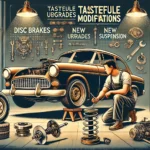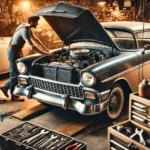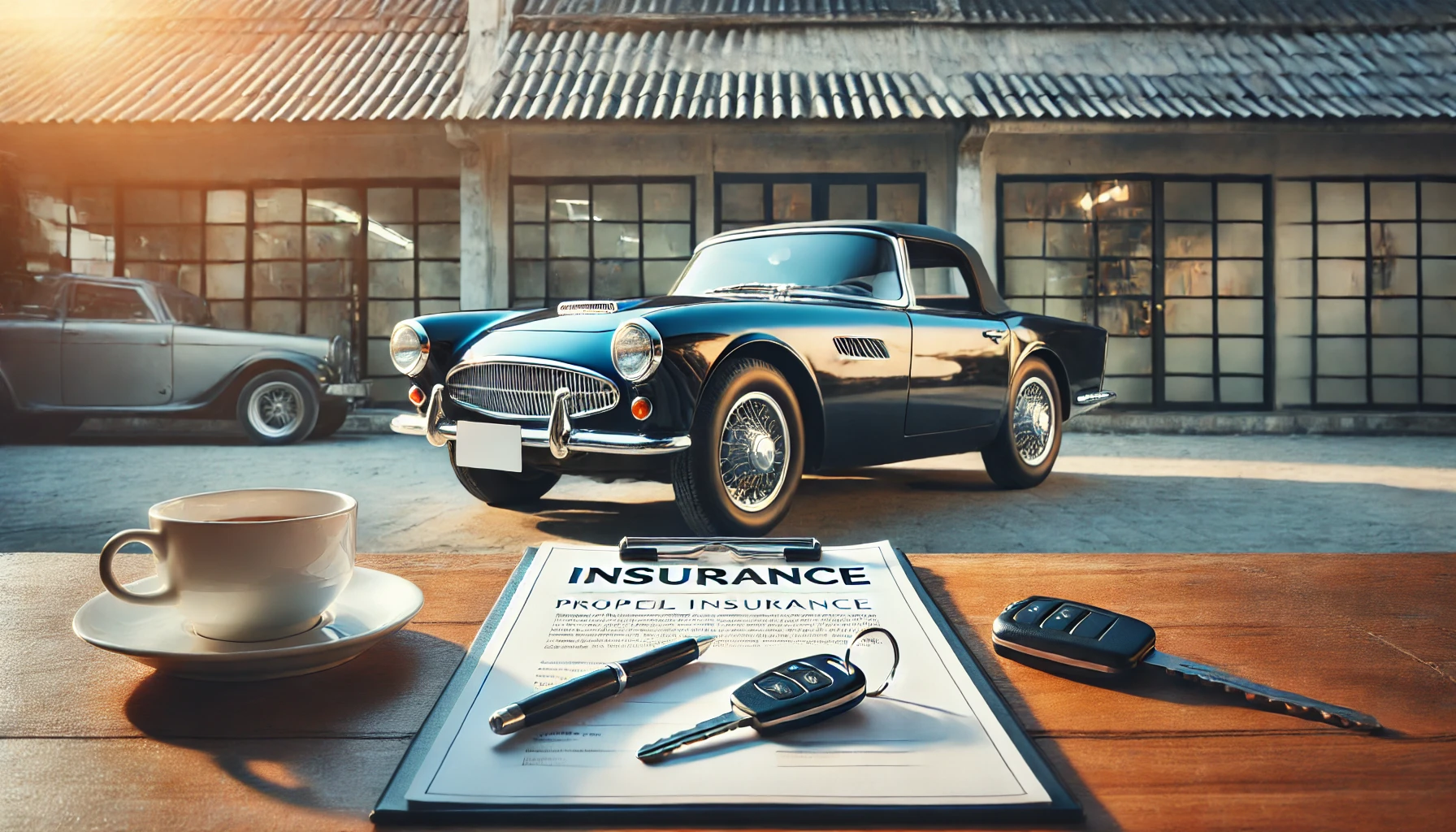Owning a classic car is a passion, but protecting it with the right insurance is just as important. Unlike regular auto insurance, classic car insurance is tailored to the unique needs of vintage vehicles. Whether you drive your classic occasionally or keep it as a showpiece, understanding how to insure it properly will ensure peace of mind. Here’s everything you need to know.
1. What Qualifies as a Classic Car for Insurance?
Insurance companies have specific criteria for what they consider a classic car. While the definition varies, most insurers classify a vehicle as a classic if it meets the following requirements:
- Age: Typically, the car must be at least 20 to 25 years old. Some policies cover modern classics (10+ years old) if they are rare or collectible.
- Condition: The vehicle should be well-maintained, restored, or in original working condition.
- Usage: Classic cars usually cannot be used for daily commuting. Instead, they are limited to leisure driving, car shows, and exhibitions.
- Storage: Many insurers require the car to be stored in a secure garage or storage facility when not in use.
Pro Tip: If your vehicle is a modified classic or a restomod, check with insurers to see if they provide coverage for custom parts.
2. Agreed Value vs. Actual Cash Value: How Classic Car Insurance Works
Unlike standard car insurance, classic car policies offer two main types of valuation:
- Agreed Value Coverage: The insurer and owner agree on the car’s value before issuing the policy. If the car is totaled or stolen, you receive the full agreed amount.
- Actual Cash Value Coverage: The insurer determines the car’s value based on depreciation and market trends, which may result in a lower payout.
Why Agreed Value is Better: Since classic cars appreciate over time, an agreed value policy ensures you are compensated for their true worth.
3. What Does Classic Car Insurance Cover?
Classic car insurance typically includes the following coverages:
✔ Liability Coverage: Protects you in case of accidents where you are at fault.
✔ Collision Coverage: Covers damages to your car in the event of a crash.
✔ Comprehensive Coverage: Protects against theft, vandalism, fire, and natural disasters.
✔ Spare Parts Coverage: Covers the cost of rare or expensive replacement parts.
✔ Roadside Assistance: Provides towing and emergency services tailored for classic cars.
Pro Tip: Some policies also offer coverage for participation in classic car rallies or track events—be sure to check with your insurer if this applies to you.
4. How to Find the Best Classic Car Insurance Provider
Not all insurance companies offer classic car coverage, so it’s important to choose the right provider. Here are some well-known insurers that specialize in classic vehicles:
🏆 Hagerty – One of the most trusted names in classic car insurance, offering agreed value coverage and restoration protection.
🏆 Grundy – Known for flexible mileage limits and worldwide coverage.
🏆 American Collectors Insurance – Offers competitive rates and spare parts coverage.
🏆 State Farm / Geico / Allstate – Some traditional insurers offer classic car policies, but coverage may be limited.
Pro Tip: Compare multiple quotes and read reviews to find the best provider for your specific needs.
5. Factors That Affect Classic Car Insurance Rates
Several factors influence how much you’ll pay for insurance:
🚗 Car Value: High-value classics like Ferraris or Aston Martins have higher premiums than more common models.
🛠 Restoration Status: Fully restored cars may have lower rates than those undergoing repairs.
📍 Location: If you live in an area prone to theft or natural disasters, rates may be higher.
📦 Storage Conditions: Keeping your car in a climate-controlled garage can lower your insurance costs.
🛣 Annual Mileage: Limited driving (e.g., under 5,000 miles per year) often results in cheaper premiums.
Pro Tip: Ask about discounts! Some insurers offer reduced rates for members of classic car clubs.
6. How to Reduce Insurance Costs for Your Classic Car
Here are some ways to lower your classic car insurance premiums:
✅ Limit Mileage: The fewer miles you drive, the lower your risk, which reduces your rate.
✅ Improve Security: Installing anti-theft devices or GPS trackers can lower your premium.
✅ Join a Car Club: Many insurers offer discounts to members of classic car organizations.
✅ Bundle Policies: If you have multiple cars or insurance policies, bundling them can lead to discounts.
✅ Take a Defensive Driving Course: Some insurers offer lower rates if you complete an advanced driving course.
7. How to File a Classic Car Insurance Claim
In the unfortunate event that your classic car is damaged or stolen, follow these steps:
1️⃣ Report the Incident: Contact your insurer as soon as possible and provide details.
2️⃣ Document Everything: Take photos of the damage, gather witness statements, and keep repair receipts.
3️⃣ Work with a Specialist Appraiser: If needed, hire an independent appraiser to ensure you receive a fair valuation.
4️⃣ Follow Restoration Guidelines: If repairs are covered, make sure the work is done by a certified classic car specialist.
Pro Tip: Keep all maintenance records and photographs of your car’s condition to help streamline any claim process.
8. Is Classic Car Insurance Worth It?
If you own a vintage vehicle, classic car insurance is not only worth it—it’s essential.
✔ Higher Payouts: Agreed value policies ensure you receive the full worth of your car in case of loss.
✔ Lower Costs: Classic car policies are often cheaper than regular auto insurance due to limited use.
✔ Tailored Protection: Specialized coverage accounts for the unique needs of classic cars, such as spare parts and restoration.
Final Thought: Whether your classic car is a family heirloom, a weekend cruiser, or a showpiece, insuring it properly ensures that it remains protected for generations to come.
Conclusion
Classic car insurance isn’t just about fulfilling legal requirements—it’s about safeguarding your investment and passion. By choosing the right policy, working with a reputable insurer, and following best practices, you can enjoy your classic car with confidence, knowing it’s well protected.








